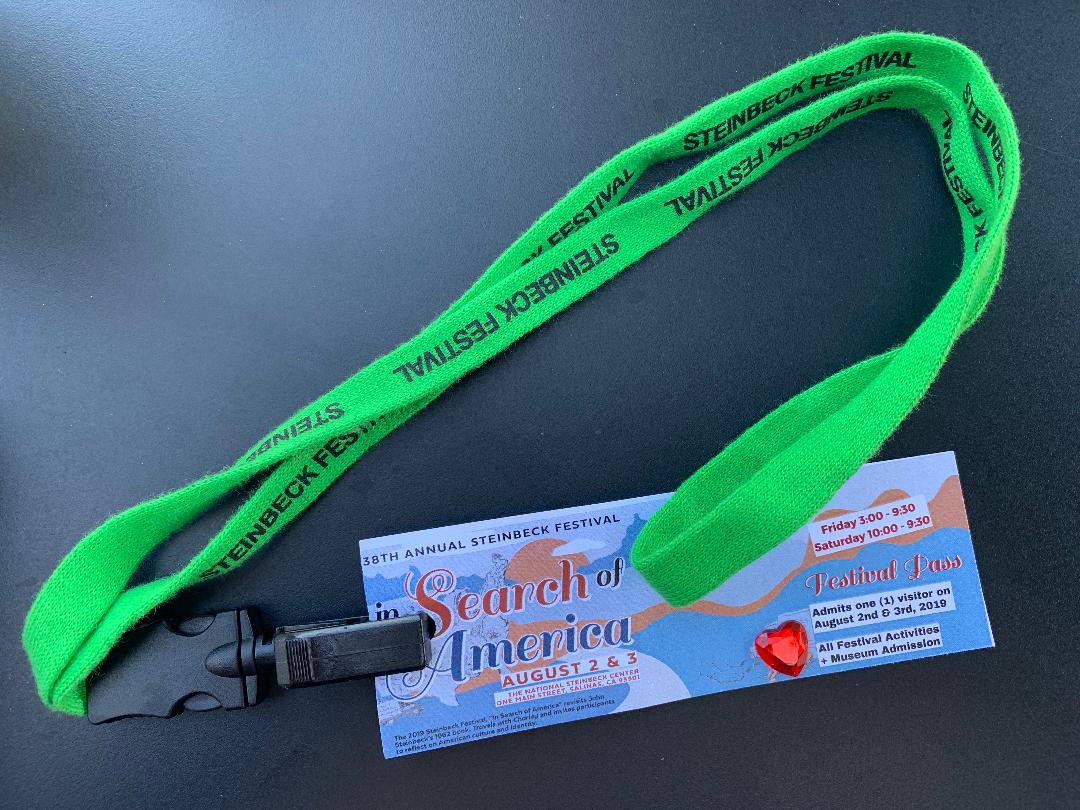One spring morning at Alice’s Dog Park in Pasadena, a few of us dog owners were talking about traveling with your dog when a gentleman in his 80s, named Larry, mentioned Travels with Charley in Search of America by John Steinbeck, a fellow dog-lover and former Californian. When I got home I ordered the book on Amazon and, a few days later, began reading. Several pages into the opening chapter of Steinbeck’s autumnal road trip story, I called to recommend it to my dog-obsessed mother back in Louisiana. At her local library she learned the state system appeared to have only one copy, which she would have to special-request. When I got to the section on school desegregation in New Orleans, near the end of Steinbeck’s narrative, I understood why.
I’d been assigned to read Of Mice and Men and The Red Pony in high school, and I was familiar with the classic films made from East of Eden and The Grapes of Wrath, so I knew John Steinbeck was an important writer who created robust settings and raw-hearted characters with whom, for whatever reason, I could easily identify. But I knew little about the causes of the author’s deeply held concern for the undervalued and marginalized, and the fraying of America’s moral fabric. Travels with Charley sparked my curiosity about this side of Steinbeck’s career.
An internet search for the whereabouts of Steinbeck’s custom 1960 GMC pickup truck, the Rocinante, led me to the National Steinbeck Center in his home town of Salinas, located five hours north of Pasadena. I was delighted to discover that the upcoming Steinbeck festival, the center’s annual event, would focus on Travels with Charley, and that attendees would have a once-in-a-lifetime chance to board the Rocinante. The theme of the 2019 festival was dogs, so I bought tickets and drove to Salinas on Saturday, August 3 with my mother, my wife, and three teenagers—our two sons and a neighbor’s—along for the ride.
Travel to Salinas in Search of John Steinbeck
We left early and arrived at 10:00 a.m. expecting crowds of Steinbeck fans, dog lovers, and social justice types, all eager to chat up strangers about Travels with Charley, like my friend Larry. Instead, a handful of early arrivals were milling about as staff members set up for the 10:30 tour of the Rocinante that had piqued my interest in the festival. While we waited I gave our neighbor’s son a rundown on John Steinbeck. The mention of The Grapes of Wrath, Of Mice and Men, and East of Eden drew a blank stare. The clue about East of Eden—“You know, one of the three movies James Dean made before he died”—caused a response. “Who’s James Dean?”
The Rocinante tour, led by Tom Lorentzen (a.k.a. John Steinbeck), was educational and entertaining, and there was something for everyone on the schedule for the rest of the day: a dog show, a walking tour of downtown, a writers workshop, a scavenger hunt and games for kids, a road trip scene-painting booth, a staged reading of Travels with Charley, a food-and-beverage fundraiser, live music, and more. The highlight for me was author Peter Zheutlin’s talk about writing The Dog Went Over The Mountain—a Travels with Charley-inspired narrative comprised of events and encounters experienced by Zheutlin during his six-week cross-country journey, in a BMW convertible, with his dog Albie.
Unfortunately, none of the crowds for the day’s activities topped 50, and by my count there were no more than 150 people, total, in attendance on August 3, the first full day of the festival. A white poodle—the single entry for the dog show—won Best Charley Lookalike, Best Dressed, and Best Personality. Scheduled for an hour and a half, the canine contest was over in five minutes. The kids games had few players, or none, and the photo booth was quiet. The bookstore looked empty. The food and beer booths, set up to raise money, were also lonely.
I’d read about large crowds at past festivals when I was doing my research, so I wondered what could have caused the drop in this year’s attendance. Was the change in date from early May to the dog days of August at fault, or was it the ticket price of $50-$60 for a festival that used to be free? Could teachers be to blame for declining interest among teenagers (like our neighbor’s son), who never read Steinbeck because he wasn’t assigned? Disappointed by the trip, I headed back to home to Alice’s Dog Park—In Search of John Steinbeck.


